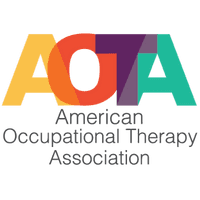Common Misconceptions About ADHD: What Every Parent Should Know
Lily Baiser, MS, OTR/L

ADHD is one of the most misunderstood developmental diagnoses—especially when it comes to school-aged children. If you’ve ever heard your child called “lazy,” “bad,” or “unmotivated,” you’re not alone. But these labels couldn’t be further from the truth.
At Kinspire, we believe education is power—and understanding the realities of ADHD is the first step toward compassionate, effective support.
Misconception #1: “My child just isn’t trying hard enough.”
ADHD is best understood as both a deficit and a delay. It’s not a matter of effort or attitude. For example, a child with ADHD may have an attention span more similar to that of a child several years younger. They can still make progress—but they need support and structure to do so.
Misconception #2: “They should be able to do this by now—they’re [age]!”
A child’s developmental age and chronological age aren’t always the same. A child may be 8 years old but functioning more like a 5-year-old in areas like emotional regulation, attention, or impulse control. That doesn’t mean they’ll always lag behind—it means they need more time and support to build those skills.
Misconception #3: “They’re just being difficult on purpose.”
This is one of the most damaging misconceptions. Kids with ADHD often experience big emotions and difficulty regulating them—not because they want to misbehave, but because their brains are wired differently. With the right tools, these children can learn to self-regulate and thrive.
A Soccer Field Analogy
Imagine two teams: one made up of 5-year-olds and another of 8-year-olds. The younger kids need frequent reminders, emotional coaching, and hands-on support. Now imagine an 8-year-old with ADHD who’s functioning more like the 5-year-old team in terms of attention, impulse control, and emotion regulation. That child isn’t behind because they’re not trying—they’re behind because their brain develops at a different pace.
Why Developmentally Appropriate Expectations Matter
When we understand a child’s developmental stage, not just their age, we set them up for success. That means:
Giving extra support at home
Being patient when big feelings show up
Adjusting expectations in school and extracurriculars
Focusing on progress, not perfection
Just like we wouldn’t expect a child with dyslexia to read fluently without structured intervention, we shouldn’t expect a child with ADHD to regulate emotions or manage time without support.
Kinspire Can Help
At Kinspire, we pair families with licensed occupational therapists trained in supporting children with ADHD. We focus on real-life routines, parent collaboration, and daily support that meets children where they are—developmentally and emotionally. Our Concierge OT model is designed to help children with ADHD gain regulation skills, confidence, and independence faster than traditional therapy allows.
Let’s Set the Record Straight—Together
If you're ready to move past the myths and help your child thrive, schedule a free consult with Kinspire today. We're here to help families like yours turn everyday challenges into real progress.




